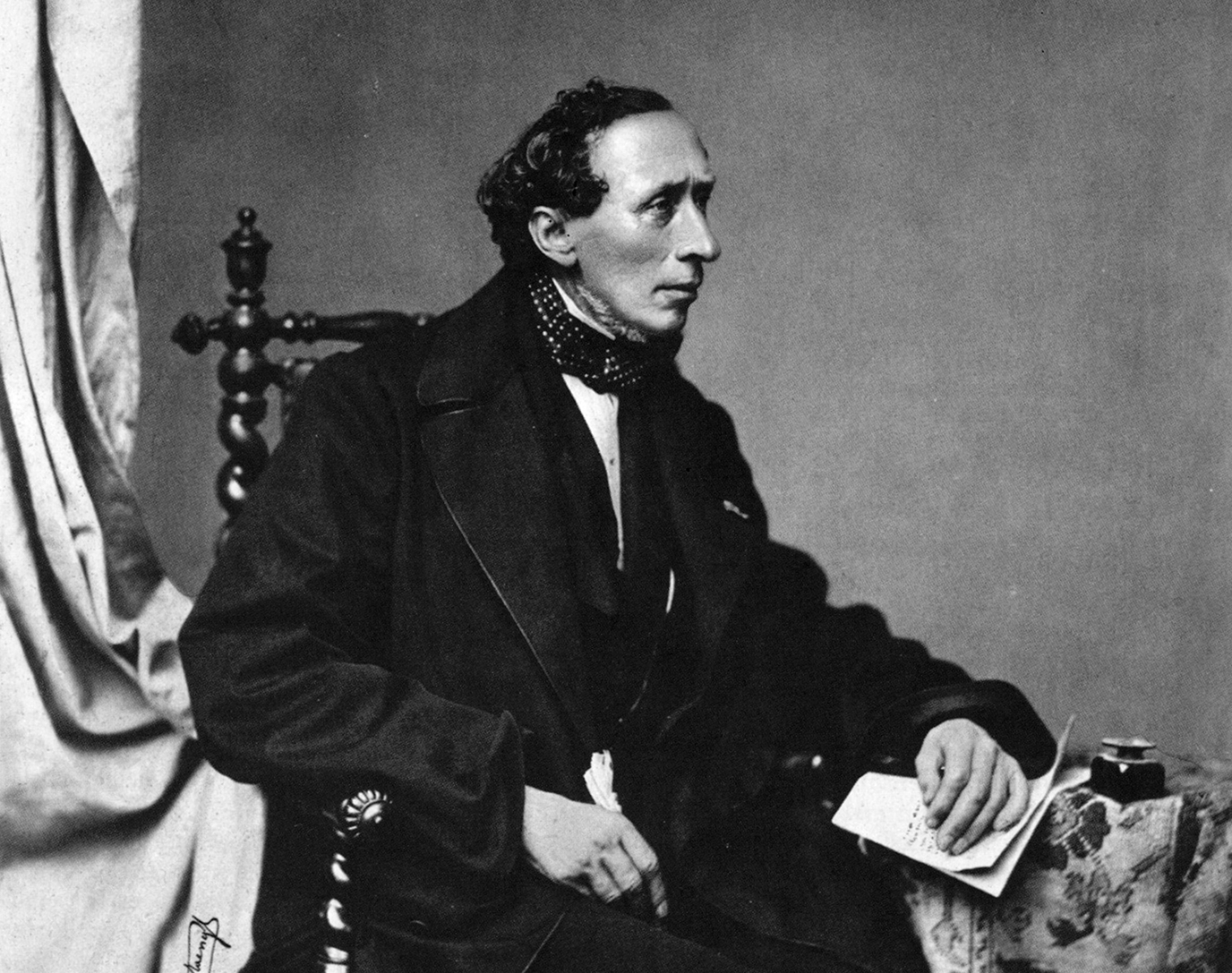
Hans Christian Andersen wrote many famous fairy tales. Some people think of fairy tales as stories that are passed down for generations such as with Grimm’s Fairy tales. The Brothers Grimm published their fairy tales in several volumes of books in the 1800s. They traveled around Germany looking for people who could tell them local fairy tales. They recorded these stories in their books. The Brothers Grimm didn’t make up their fairy tales. Most of them were centuries old.
Hans Christian Andersen, however, was quite a unique author. He did write some already-known fairy tales in his books. But he made up most of the fairy tales in his books. Some of his fairy tales have become popular animated movies, such as The Little Mermaid and Frozen. Andersen didn’t actually write a story called “Frozen.” The movie Frozen was based on his story called “The Snow Queen.” You might be interested to know that the movie The Little Mermaid ended quite differently than Andersen’s original story “The Little Mermaid.” I highly recommend that you check out Andersen’s version because I think its ending is much more powerful than the movie’s. Spoiler alert: Ariel never gets her voice back, never wins Prince Eric, and dies in the end by turning into sea foam.
Andersen also wrote many well-known tales like “The Ugly Duckling,” “The Princess and the Pea,” and “The Emperor’s New Clothes.” Stories like “The Wild Swans” and “The Nightingale” are not quite as well known. After reading “The Wild Swans,” I wondered if there was a connection between it and the story of “The Ugly Duckling.” Both stories are about swan transformations. In “The Ugly Duckling,” the Ugly Duckling (which is actually a cygnet—a baby swan) transforms into a beautiful swan. In “The Wild Swans,” Princess Elisa’s brothers transform into swans at daylight. They transform back into princes when the sun goes down.
Andersen himself made a swan-like transformation from poverty to fame. Andersen came from very humble beginnings. He was born in a one-room house in the poor area of Odense, Denmark on April 2, 1805. With hard work, he became one of Denmark’s most beloved figures and one of the world’s most beloved writers.
H.C. Andersen, as we call him in Denmark, moved to the city of Copenhagen in 1819 to work as an actor. He began writing around this time, but his teachers didn’t think his work was very good. They recommended that he quit writing. Luckily Andersen didn’t listen. He began to publish stories in 1829. He published his first book of fairy tales in 1845, but it did not become popular in Denmark. Andersen’s star began to rise when his fairy tales were translated into other languages and sold in countries like England and Germany. Andersen became famous for his work in other European countries before he became famous in Denmark.
Eventually, the Danes realized that Andersen was a national treasure—and we’ve celebrated him ever since. There are statues that show different scenes or characters from his stories all over Denmark. Examples include Ariel from “The Little Mermaid” and the swans from “The Wild Swans.” Over the years Denmark has printed lots of different postage stamps to honor H.C. Andersen that feature either Andersen’s picture or an image from one of his fairy tales. If you’re ever in Odense you can visit both Andersen’s birth home and the Hans Christian Andersen Museum to learn more about Denmark’s favorite son.
On April 2, 2005, Denmark held a national celebration in honor of the 200th anniversary of Andersen’s birth. The country went wild with remembering and honoring everything H.C. Andersen. You could buy coins, dinnerware, and even baby clothes with Andersen’s picture on them. There were TV shows about him that were created and aired just for this celebration. A huge live show in his honor was broadcast to 15 different countries from Denmark’s national soccer stadium. World-renown musicians performed at the show, including pop stars like Olivia Newton-John and Tina Turner.
So why make such a big deal about H.C. Andersen as opposed to other Danish authors? This is likely because Andersen’s stories appeal equally to children as well as adults and are popular all over the world. Andersen has captured the imagination of every generation since his fairy tales were first published. His works have been translated into more than a hundred different languages and are popular all over the world. We Danes weren’t alone in celebrating the 200th anniversary of Andersen’s birthday. People in cities around the world also held celebrations and other events. Over the years, Andersen’s fairy tales have been turned into movies and plays. There is even an amusement park based on his work that opened in Shanghai in 2017.



 About BeeLine
About BeeLine